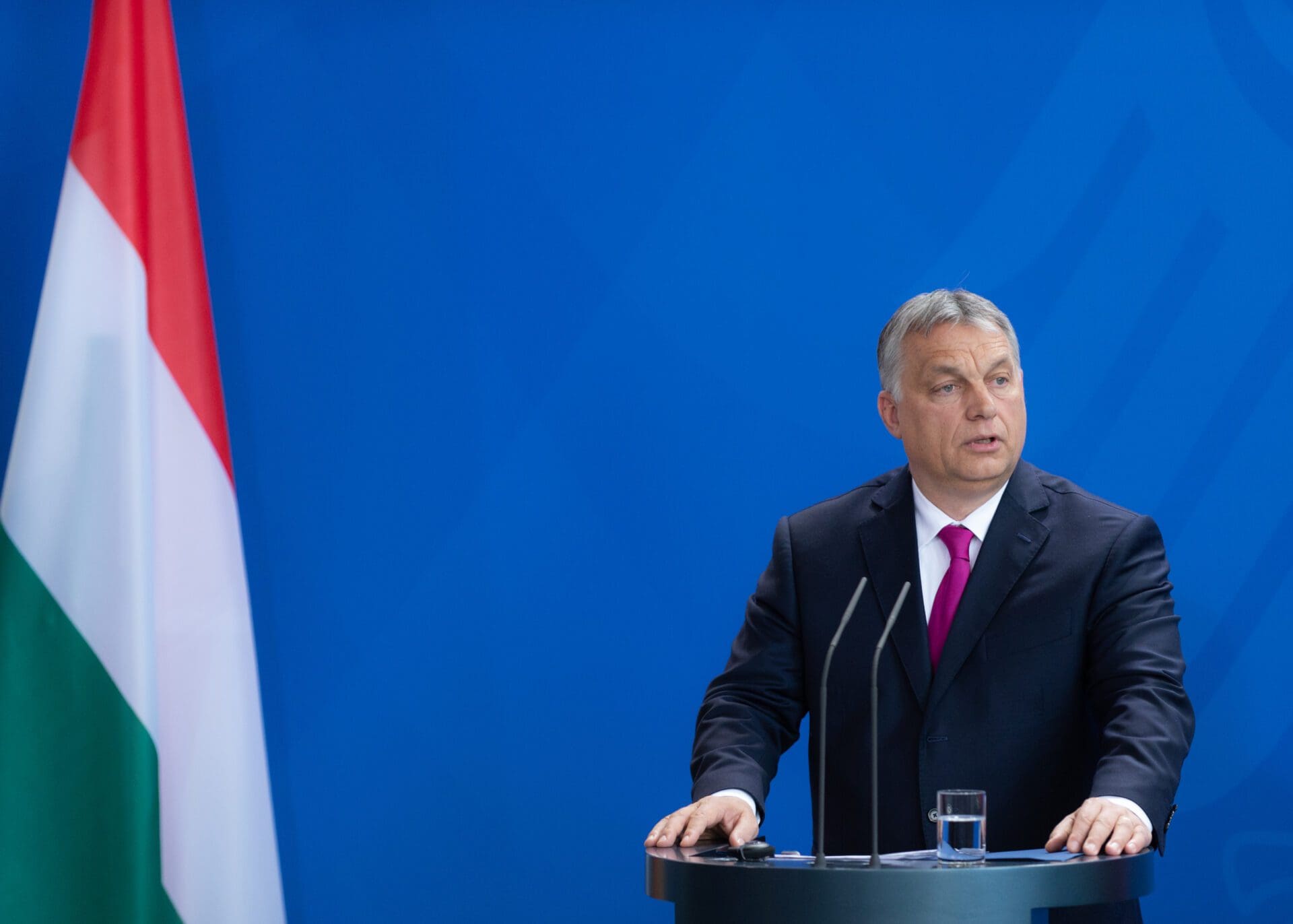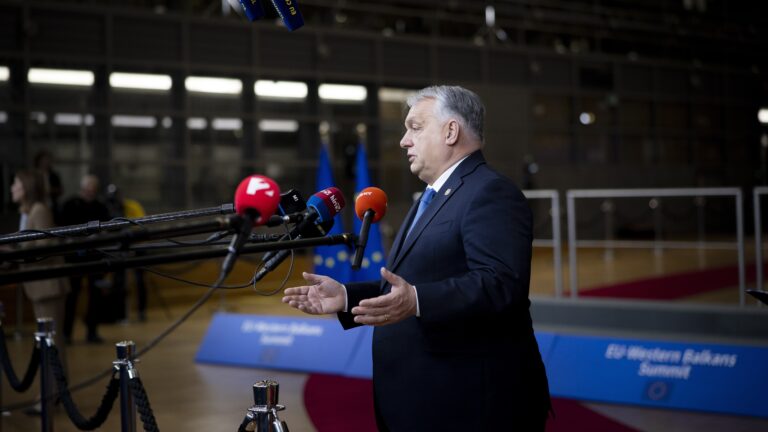As the Hungarian raiders pillaged throughout Western Europe in the early tenth century, the saying ‘A sagittis Hungarorum, libera nos Domine’, meaning ‘Lord, save us from the arrows of the Hungarians’ was recorded. A similar paraphrase for our time would be in order, it seems. But this time it would go ‘Lord, save us from the objections of the Hungarians’.
Indeed, Brussels is in crisis mode again because of a Hungarian veto threat. This time it is meant to block the €18 billion joint EU loan to be used to aid Ukraine. The Hungarian government’s position is simple: it supports the aid plan but says no to the loan that would increase the bloc’s overall joint debt. Instead, it has already made sure that Ukraine gets Hungary’s contribution—€187 million—in direct payment, allocated from the state budget.
Technically, Hungary hasn’t vetoed yet, because the question wasn’t officially on the agenda of the EU finance ministers meeting on Tuesday. The body planned to vote on it, but it was postponed due to Hungary’s preliminary objections. So, while the alleged Hungarian veto is technically fake news, Hungary did practically block the vote. Now, theoretically, any other member states could follow Hungary’s example and simply give their share of the designated amount to Ukraine directly. But of course, many of them don’t like the taste of that, and would rather stick to the loan option. Problem is, as long as Hungary opposes it, the bloc cannot get that loan.
1/3 Today’s news was all about Hungary vetoing financial assistance to #Ukraine. This is fake news. Hungary is ready to give financial assistance to Ukraine, on a bilateral basis. No #veto, no blackmailing.
— Orbán Viktor (@PM_ViktorOrban) December 6, 2022
This is why Hungary is being accused ‘being immoral’ and hindering the EU’s ability to help Ukraine. But then again, whoever wants to truly help, can do it without the joint EU scheme, as Hungary is already doing. For instance, Hungary has launched several construction projects within Ukraine to rebuild public facilities, schools and kindergartens (the first of which has already been completed). It is unfair and inappropriate, therefore, to accuse Budapest of immorality.
Nonetheless, the stalemate in Brussels continues, although it is not really about Ukraine. It is about
Hungary showing the EU leaders that it has learnt its lesson and can play their game just as well as they do.
It’s about the €7.5 billion in cohesion and development funds (and the €5.8 billion Covid recovery funds) that the Commission just decided to keep frozen until the alleged rule of law issues are solved. The same rule of law that is being defined and re-defined arbitrarily and undemocratically over and over.
Now, the European Commission’s decision came despite the record swift implementation by the Hungarian government of structural reforms aimed at increasing transparency, such as the setting up of the new anti-corruption body which includes representatives of both the government and civil society.
But all the reform plans appear to have been put forward in vain.
Brussels’ problem is not the lack of transparency, but Orbán himself,
and his national conservative governance. But as probably the EU’s most experienced politician, he knows how to speak Brussels’ language. If the EU wants to blackmail Hungary with money, Hungary can do the same. At least some rules still apply to everyone.
Fortunately, some people recognize that the issue is wider than just Ukraine. That this debate will essentially define the future of sovereignty within the European Union. Polish MEP Jacek Saryusz-Wolski, for instance, told a Polish media outlet that it was crucial for Hungary to keep opposing the unequal treatment it receives for the alleged rule of law violations because acquiescing would set a dangerous precedent for other countries as well. ‘Hungary is paving the way for us, it is such an icebreaker. At the Council of Finance Ministers on 6 December, an impasse is drawn regarding the funds for Hungary (…) it is like a tug of war through this mythical Brussels and Hungary. On the other hand, these two sides threaten to freeze each other, sometimes with money—this is Brussels, and sometimes with vetoes—Hungary. (…) We should keep our fingers crossed for Hungary to succeed’, the MEP opined.
Indeed, Poland also has a bad record when it comes to the rule of law, but it is being spared at the moment: its geopolitical position makes it inevitable for Warsaw to strongly support Brussel’s mainstream Ukraine policies. Unlike in the case of Hungary, as we see, whose external threats are mainly of energy and financial kind.
Polish politicians are not the only ones who would like to see this question resolved as soon as possible and therefore would agree to make concessions to Hungary. A group of twelve countries, including
Germany, France, Spain and Italy would rather have the European Commission revise its decision
on the freezing of the cohesion funds meant for Hungary than have to abandon their plans for the joint €18 billion loan. The leaders of these countries, led by France’s Emmanuel Macron and Germany’s Olaf Scholz, have formally requested the reassessment of the Hungarian reforms—hoping that a different outcome would unlock the path to the aid scheme.
For all those who are outraged right now over the Hungarian veto threat, may this be a reminder that this is how politics is done. Hungary only does what the European Commission has been doing for ages: using the available instruments to apply pressure and reach a desired outcome. The EC does it by withholding crucial development and recovery funds, Hungary does it by resorting to the veto power it has been granted under Maastricht—tit for tat. In order to resolve the impasse, negotiation is needed, in which both sides have their own bargaining chips, and not a diktat. We Hungarians know the latter all too well and want none of it.







